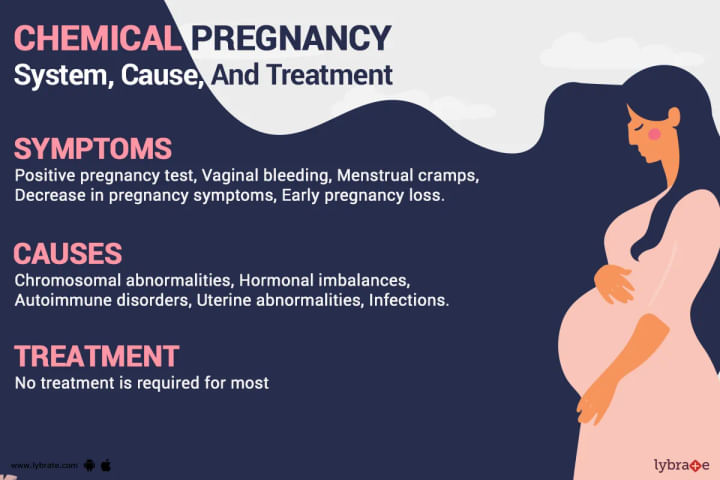What is a chemical pregnancy
A type of very early miscarriage known as a chemical pregnancy happens soon after a fertilized egg implants in the uterus. It is called a ‘chemical’ pregnancy because it can only be detected through a blood test, rather than by visible pregnancy symptoms or an ultrasound. Despite being a common and natural occurrence, a chemical pregnancy can be a difficult and emotional experience for those who have been trying to conceive. It's crucial to keep in mind that having a chemical pregnancy does not preclude someone from getting pregnant normally in the future. It is possible to move on and give it another shot with the right medical attention and support.
According to some estimates, up to 50% of all pregnancies may be chemical pregnancies, which makes chemical pregnancies quite prevalent. Despite their prevalence, however, chemical pregnancies can be emotionally difficult for those who have been trying to conceive, and it is important for people to understand what a chemical pregnancy is and how to cope with the experience.
Understanding chemical pregnancy
Chemical pregnancies are very early miscarriages that take place before the embryo can be spotted on an ultrasound. It is called a 'chemical' pregnancy because the only way to detect it is through a blood test that measures the levels of human chorionic gonadotropin (hCG), a hormone produced during pregnancy. A chemical pregnancy is diagnosed when a person has a positive pregnancy test but no embryo is visible on an ultrasound after a few weeks. This usually occurs within the first few weeks of pregnancy, often before a person even realizes they are pregnant.
Symptoms of a chemical pregnancy
Chemical pregnancies mostly have no outward symptoms, or they are asymptomatic. Some people may experience very mild pregnancy symptoms, such as breast tenderness or mild cramping, but these symptoms are usually not severe enough to be noticed. In most cases, a chemical pregnancy is only detected through a blood test that is conducted after a positive pregnancy test.
Causes of a chemical pregnancy
A chemical pregnancy may have several different causes. Some of the most common causes include:
Chromosomal abnormalities: Most chemical pregnancies are caused by chromosomal abnormalities in the fertilized egg. These abnormalities may be caused by a variety of factors, including genetic mutations, environmental factors, or a combination of both.
Uterine abnormalities: Endometrial abnormalities such uterine fibroids or scar tissue can potentially result in a chemical pregnancy. These abnormalities may interfere with the implantation of the fertilized egg or prevent the embryo from developing properly.
Hormonal imbalances: Hormonal imbalances, such as low levels of progesterone, can also cause a chemical pregnancy. Progesterone is a hormone that helps to support the pregnancy and maintain the uterine lining. Low levels of progesterone may cause the fertilized egg to be expelled from the uterus before it can develop into a viable pregnancy.
Other medical conditions: Certain medical conditions, such as autoimmune disorders or certain medications, may also increase the risk of a chemical pregnancy.
Diagnosis of a chemical pregnancy
An hCG blood test is typically used to determine whether or not a pregnancy is a chemical pregnancy. During pregnancy, the hormone hCG is created, and during the first few weeks of pregnancy, its levels usually rise. If a person has a positive pregnancy test but their hCG levels do not increase as expected, or if an ultrasound does not show an embryo after a few weeks, it is likely that they have experienced a chemical pregnancy.
Treatment of a chemical pregnancy
There is no specific treatment for a chemical pregnancy, as it is a natural and common occurrence that cannot be prevented. In most cases, a chemical pregnancy will resolve on its own, and no treatment is necessary. If a person experiences bleeding or cramping during a chemical pregnancy, they may be advised to rest and take over-the-counter pain medication to manage any discomfort. If the bleeding is heavy or accompanied by severe cramping, a person should contact their healthcare provider for further evaluation and treatment.



+1.svg)
